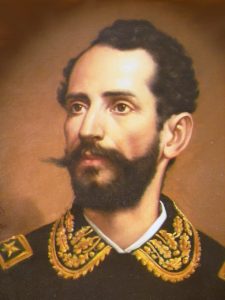Does Costa Rica have the death penalty?
I am often asked by those who want to relocate to Costa Rica if there is a death penalty (La pena capital or La pena de muerte).
Costa Rica abolished its death penalty in 1877 and was one of the countries that banned capital punishment in 1882 by Article 45 of country’s constitution which states that, ”Human lives are inalienable.”
Costa Rica and the United States signed an extradition treaty in November 10, 1922 concerning the death penalty. The Costa Rican Minister of Foreign Relations said ” that it is understood that the government of the United States of America gives assurance that the death penalty will not be passed upon criminals surrendered by Costa Rica to the United States of America for any one of the crimes enumerated in the said treaty.”
However, the above was not always the case in that death penalty did exist between 1802 and 1877. Many public executions were held where San José’s La Sabana Park is located today.
In those days people were execute for committing the following crimes: conspiring against the State, engaging in an armed attack against the authorities, enlisting in the armed forces of another country, conspiring against the Catholic religion, premeditated homicide, and having leprosy (lepra) and escaping from the facility where they were interned.
Murderers were paraded publicly wearing a white robe, a black cap and with their hands tied as they were led to the place where they were to be executed. Traitors and those who had murdered either their father, mother or children were marched through the streets with their heads shaved and pulled by a chain around their neck. A priest, scribe and executioner (el verdugo or ejecutor)accompanied the criminal to the site of execution in total silence.
There were two methods of execution in those times: by hanging or firing squad.
Other executions were extremely cruel. For example, one prisoner was tied to a rope and dragged by horses and later hanged with the same rope. The body was then thrown into lake where San Juan Dios hospital is located today.
Today 50 years in prison is the maximum punishment.




